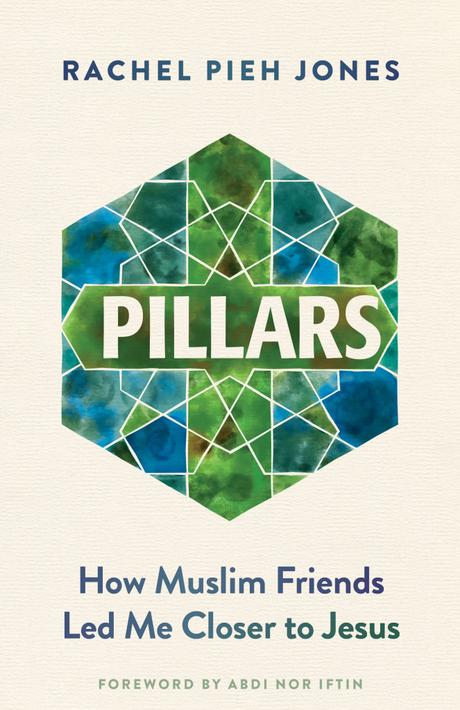
"I have waited for a book like Pillars all my adult life, a personal book that discovers similarities and
honors differences between Christianity and Islam, a book that . . . shows what can happen when we
connect rather than collide."
Marilyn R. Gardner, author of Between Worlds: Essays on Culture and Belonging
I think it was in 2012 when I first "met" Rachel Pieh Jones. We connected online over a mutual love and struggle over lives lived between worlds, over writing, and over a shared connection to Muslim majority countries. Meeting Rachel has been a gift that keeps on giving. Through the years we have shared our hearts and our stories and I have learned much through my friendship with this extraordinary woman.
Today, Rachel's second book Pillars is released and I cannot tell you how excited I am about this book! I had the honor of reading an advanced copy and feel like I have been waiting for it my entire adult life.
Below is an interview from the press release for Pillars developed by Plough Publishing.
When Rachel Pieh Jones moved from Minnesota to rural Somalia with her husband and twin toddlers eighteen years ago, she was secure in a faith that defined who was right and who was wrong, who was saved and who needed saving. She had been taught that Islam was evil, full of lies and darkness, and that the world would be better without it.
Luckily, locals show compassion for this blundering outsider who can't keep her headscarf on or her toddlers from tripping over AK47s. After the murder of several foreigners forces them to evacuate, the Joneses resettle in nearby Djibouti.
Is there anything you find daunting about putting your story out like this for the world?
Absolutely. Spirituality is deeply personal. Sharing such a personal story makes me feel incredibly vulnerable. I hope to honor my Christian tradition, even as my ideas of what it means to be a Christian have been transformed and I'm not sure how people will respond to some of my conclusions. I also aim to honor Islam as I experience it in the Horn of Africa and it is daunting to present another faith tradition as an outsider. I hope to have done so respectfully.
Why do you choose to do it in spite of those apprehensions?
I'm a peace-builder at heart and have learned that peace does not come through avoiding hard conversations, and that peace does not mean homogeneity or agreement. Peace is built right in the middle of complexity as we learn to honor another's perspective. This is something our communities desperately need. Peace is built through shared experiences of joy, grief, fear, and celebration, through choosing to love people without needing to change them, and through realizing that we are the ones being loved too. That conviction compels me to share this story as one example of what peace-building can look like.
How do you imagine your story will be received by North American evangelical Christians? By the Muslim community?
I don't expect all readers, whether Christian or Muslim, will agree with all the conclusions I come to in Pillars. I even anticipate some pushback because Christians and Muslims have a complicated history that can make it hard to see positive aspects in the other. I hope even in the places that feel uncomfortable, readers will find intriguing possibilities for conversation andfurther exploration. At the same time, I know many Christians and Muslims who have developed
meaningful relationships. I hope these readers will feel less alone in their quest to find common ground.
Eboo Patel, author of Acts of Faith: The Story of an American Muslim, the Struggle for the Soul of a Generation
"This is a beautiful story, beautifully told. It's much more than the memoirs of a Christian American living in Africa and exploring Islam with devoted Muslims; it's about learning how to be a good neighbor to the people around you, wherever you might be in the world. This is the kind of book we need right now."
Amy Peterson, author of Dangerous Territory: My Misguided Quest to Save the World
"Filled with hard-won insights of a mature faith lived in long community with Muslim neighbors, Pillars refuses sentimental calls for the kind of peace that glosses over differences. Instead, Jones finds her faith unraveled and rewoven, stronger for what she's learned in the Horn of Africa and from her Muslim friends. Anyone whose faith has been challenged by life experiences will find a helpful model for spiritual growth here."

